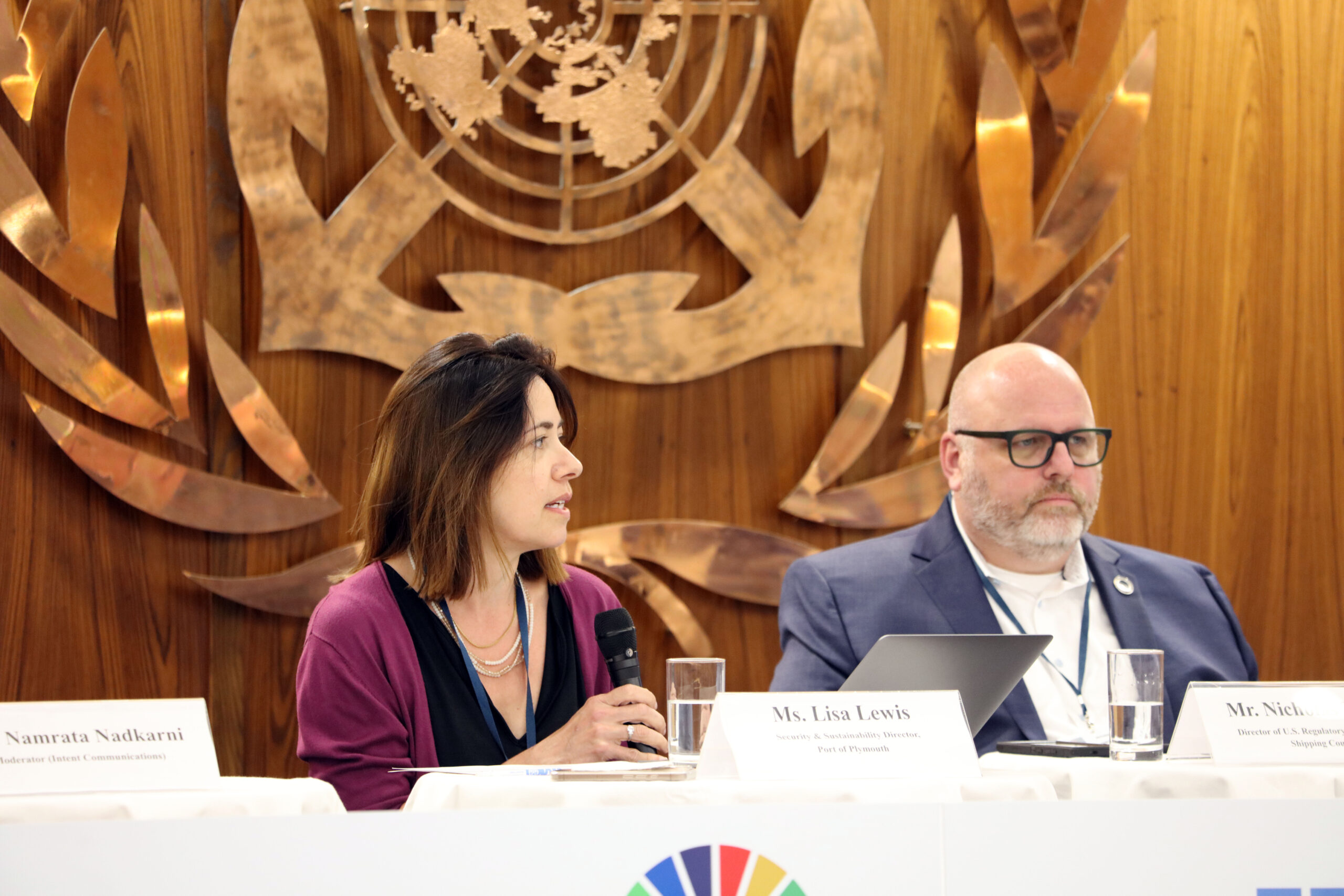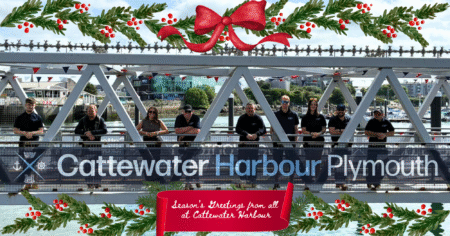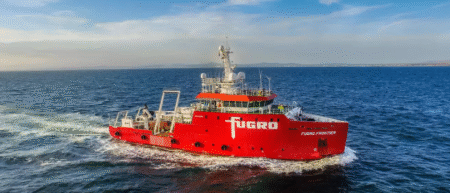Global maritime leaders from the International Maritime Organization (IMO), International Labour Organization (ILO), International Chamber of Shipping (ICS), and International Transport Workers’ Federation (ITF) have reaffirmed their commitment to fair treatment, due process, and coordinated action to protect seafarers’ rights at a joint event held at IMO HQ recently.
Cattewater Harbour’s Security and Sustainability Director, Lisa Lewis, presented at the event.
Lisa and fellow panellists discussed the ‘Criminalization of Seafarers – a logistics and supply chain perspective’ including existing controls, reasons for ongoing issues and improvement ideas.
Harsh realities of unfair treatment were brought to life through lived experiences of long-term detention noting family consequences too.
Key issues highlighted during the course of the panel session included:
· Risks – criminality exposures are inherent across end to end (E2E) value chains collectively moving people and assets. Insufficient cooperation and alignment create criminality opportunities. Maritime and Logistics benefit from enhanced threat profiles; heatmaps to show unfair treatment locations and how cases are resolved. Seafarers have the right to know what they are sailing into.
· Controls – Maritime has ISPS. Logistics has TAPA. Ports are interfaces and pilots are often the crew’s first contact. Guidelines specify duties with port operator gap, a framework could address e.g. red flags (when is treatment unfair?), consolidated contacts (single phone number) and timely notifications (when mobilising assistance delays snowball consequences). Crew assume employers have sufficient insurance but this is not always the case.
· Consequences – self reporting is disincentivised, notifiers accused and detention enacted before evidence obtained. Through efforts to assign accountability for contraband Logistics entities packing and moving cargo landside may get more spotlight with enhanced chain of custody liability driving security layer innovation e.g. AI flagging suspicious activity and transactions. Decriminalisation is adopted effectively in some regimes e.g. Belgium.
· Friction damages global supply chains e.g. ship owners suspend routes to destinations where crew are detained.
Subsequent call to actions in response to the key issues highlighted throughout the discussion included:
· Visibility – ensure IMO Guidelines and ITF Toolkit is published widely adding to websites, toolbox talks and contracts. Download Guidelines on Fair Treatment of Seafarers Detained in Connection with Alleged Crimes
· Learn lessons – adopt examples enshrining rights and duties e.g. Magna Carta of Filipino Seafarers
· Use data – share data so resources targeted where trends occur. Collaborate as per Security and Safety where commercial constraints adapted for everyone’s benefit. Add to ESG due diligence checks and performance reports
· Simplify and collaborate – agree hub to independently investigate guideline compliance and apply pressure collectively
· Educate – provide Enforcement and Judiciary with capacity building awareness e.g. scale of ships and ports plus Logistics complexity.
To watch the full summit please visit https://www.youtube.com/watch?v=ygwHyMHtSgw&t=39108s – this particular panel session begins at 2hr 17mins (duration 1hr 5mins).
25 June is the IMO’s annual Day of the Seafarer.
This year’s theme is centred around ‘My Harassment-Free Ship’ and is about changing the maritime culture to one where every seafarer feels safe, valued, and protected at sea.




